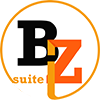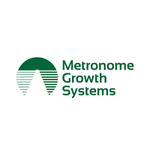Description

Bizsuite

Metronome Growth Systems
Comprehensive Overview: Bizsuite vs Metronome Growth Systems
As of my last update in October 2023, detailed information specifically related to Bizsuite, Metronome Growth Systems, including market data, might not be exhaustively covered in my sources. However, I can provide a general framework based on typical products of this nature and similar offerings in the market. If these are recent or niche products, the availability of specific data might be limited.
a) Primary Functions and Target Markets
Bizsuite
Primary Functions:
- Business Management: Offers tools for managing various aspects of business operations, including CRM, financial management, and project management.
- Automation: Provides features to automate routine business processes to increase efficiency.
- Analytics: Offers sophisticated analytics and reporting tools for strategic decision-making.
Target Markets:
- Small and Medium Enterprises (SMEs) seeking a comprehensive suite to manage their business operations.
- Startups looking for scalable solutions to help them grow.
Metronome Growth Systems
Primary Functions:
- Growth Planning: Focuses on strategic growth planning and execution to help businesses scale.
- Performance Metrics: Provides tools for tracking key performance indicators (KPIs) and other growth metrics.
- Coaching and Development: Offers resources for executive coaching and team development.
Target Markets:
- Scaling businesses looking for frameworks and tools to sustain growth.
- Organizations emphasizing strategic planning and performance measurement.
b) Market Share and User Base
Understanding market share and user base specifics would typically require current industry reports or proprietary data. Generally, the market dynamics in business management and growth system software are influenced by various factors such as functionality, ease of integration, customer support, and pricing.
- Bizsuite: Typically, a product like Bizsuite may have a broader user base due to its encompassing suite of management tools. However, competing with major platforms like Salesforce or Microsoft Dynamics might affect its overall market share.
- Metronome Growth Systems: Likely has a more niche user base focused on companies specifically looking for strategic growth tools and coaching services. This may result in a smaller market share compared to generalized business suites.
c) Key Differentiating Factors
Bizsuite
- Typically marketed as an all-in-one solution, which can appeal to businesses needing a wide array of tools under a single platform.
- Integration capabilities might be a strong suit, making it an attractive option for businesses with diverse operational needs.
- Potential focus on automation and customization, allowing businesses to tailor the system to their specific workflows.
Metronome Growth Systems
- Specialized focus on growth strategy and performance tracking can set it apart from generic business management systems.
- Offers a structured framework for growth, which includes coaching, making it more suitable for businesses focusing on leadership and team development.
- Likely provides more in-depth resources for strategic planning and execution, catering to organizations with explicit growth objectives.
For a precise analysis, particularly on market share and detailed differentiations, access to company releases, user reviews, and industry reports would be necessary. Consider checking the latest articles, company websites, and technology forums to get the most updated and detailed insights.
Contact Info

Year founded :
2019
Not Available
Not Available
Japan
Not Available

Year founded :
Not Available
Not Available
Not Available
Not Available
Not Available
Feature Similarity Breakdown: Bizsuite, Metronome Growth Systems
To provide a detailed feature similarity breakdown for Bizsuite and Metronome Growth Systems, we'll consider the typical landscape of business management software as of my last update. Please be aware that product features may vary with newer versions, and I recommend consulting the latest product documentation or vendor websites for updates.
a) Core Features in Common
Both Bizsuite and Metronome Growth Systems are business management tools aimed at improving operational efficiency and strategic planning. Here are some common core features they might share:
-
Dashboard and Analytics:
- Both platforms likely offer dashboards that provide insights into various business metrics, allowing users to track performance, KPIs, and generate reports.
-
Strategy Planning and Execution:
- Tools for developing, tracking, and executing business strategies are likely present in both software.
-
Goal Setting and Tracking:
- They both probably include features that facilitate goal setting at individual and organizational levels.
-
Collaboration Tools:
- These platforms may offer collaboration features to enhance teamwork across departments.
-
Project and Task Management:
- Both might provide capabilities for managing projects and tasks, ensuring alignment with business goals.
-
Integration Capabilities:
- Integration with other common business software (e.g., CRM, ERP systems) is usually a feature they both support.
b) User Interface Comparison
In terms of user interface, while specific design aspects can vary significantly, there are general trends:
-
Bizsuite:
- The user interface might be more focused on providing a comprehensive view of business operations, possibly with customizable dashboards that cater to different business functions.
- It could be more intuitive for users with a focus on operational data management and analysis.
-
Metronome Growth Systems:
- Likely emphasizes strategy alignment and execution. The interface might be designed to facilitate step-by-step processes for growth planning and performance tracking.
- It might prioritize clarity in goal setting and tracking progress towards strategic outcomes.
Overall, the key difference in user interface would revolve around customization options and the emphasis on particular business functions.
c) Unique Features
-
Bizsuite:
- Bizsuite may offer unique operational features or proprietary integrations, geared more toward day-to-day business management or specific industry needs.
- It might have advanced analytics capabilities or in-depth financial tools, depending on its target audience.
-
Metronome Growth Systems:
- This platform might have unique features that emphasize growth strategy development and execution. For instance, proprietary frameworks or methodologies for scaling businesses.
- Unique strategic planning tools or coaching features might also be available, helping organizations implement best practices for growth.
In summary, while both Bizsuite and Metronome Growth Systems share core management and strategic features, they might differ significantly in their approach to user interface and specific unique features that cater to their respective audiences. To get the most accurate and up-to-date comparison, consulting the product specifications directly from the vendors would be beneficial.
Features

Not Available

Not Available
Best Fit Use Cases: Bizsuite, Metronome Growth Systems
Bizsuite and Metronome Growth Systems are distinct tools designed to address the needs of varying business scenarios. Here’s a breakdown of their best fit use cases:
Bizsuite
a) Types of Businesses or Projects Best Suited for Bizsuite:
-
Small to Medium Enterprises (SMEs): Bizsuite is often tailored to support the operational and management needs of SMEs. Its tools are designed to streamline processes without the need for extensive IT infrastructure.
-
Startups: For new businesses looking for an affordable and scalable solution to manage business operations, Bizsuite provides a comprehensive suite that can integrate various functions like finance, HR, and sales.
-
Project-Based Companies: Companies that operate on a project basis can utilize Bizsuite’s project management tools, which help in tracking progress, managing resources, and maintaining timelines effectively.
-
Industry Verticals Benefit: Any industry where integrated management systems provide value - such as retail, manufacturing, or services - can benefit from Bizsuite’s flexible modules designed to improve efficiency and collaboration.
Metronome Growth Systems
b) Scenarios for Metronome Growth Systems as the Preferred Option:
-
Growth-Oriented Businesses: Companies with aggressive growth goals will find Metronome Growth Systems particularly useful. Its strength lies in strategic planning and execution to scale businesses efficiently.
-
Mid to Large Enterprises: For larger organizations requiring strategic alignment and performance tracking at multiple levels, Metronome Growth Systems offers robust features that support complex hierarchical structures.
-
Strategy-Focused Applications: Businesses that prioritize strategic initiatives, goal setting, and execution tracking benefit from Metronome’s emphasis on strategic growth frameworks.
-
Industry Vertical Alignment: Industries with a need for continuous strategy refinement and execution (e.g., technology, finance, consulting) are ideal due to the system’s focus on growth metrics and alignment.
How These Products Cater to Different Industry Verticals or Company Sizes:
-
Bizsuite: Its modular design provides versatility that appeals to smaller enterprises and startups needing comprehensive yet straightforward solutions across various business functions. Its modular capability allows businesses to pay for only what they need, making it economical and scalable.
-
Metronome Growth Systems: Geared towards organizations with multiple departments and varied priorities, it offers strategic oversight and control facilities, making it suitable for larger enterprises. Its focus on strategic planning and execution allows it to fit well in industries where growth and alignment are critical.
In conclusion, Bizsuite serves businesses that need an adaptable, integrated management platform with a focus on operational efficiency, particularly in small to medium settings. Metronome Growth Systems excels in strategic growth management and is best suited for larger companies aiming to enhance their strategic planning and execution capabilities.
Pricing

Pricing Not Available

Pricing Not Available
Metrics History
Metrics History
Comparing undefined across companies
Conclusion & Final Verdict: Bizsuite vs Metronome Growth Systems
To craft a detailed conclusion and final verdict on Bizsuite and Metronome Growth Systems, let's delve into each aspect requested:
Conclusion and Final Verdict
When assessing Bizsuite and Metronome Growth Systems, it's crucial to consider various factors, including functionality, cost, scalability, and user experience. Both products have their strengths and tailored offerings, making the decision contingent upon specific business needs.
a) Best Overall Value
Best Overall Value: Metronome Growth Systems
Considering all factors, Metronome Growth Systems often provides better overall value for businesses focused on structured growth and scaling. Its emphasis on metrics-driven decision-making and comprehensive growth strategies typically cater to companies that are looking to streamline operations and intensely track their growth metrics.
b) Pros and Cons
Bizsuite
- Pros:
- Comprehensive Suite: Offers a wide range of tools covering various business aspects from CRM, sales, to human resources.
- User-Friendly Interface: Aims to provide an intuitive user experience, reducing the learning curve.
- Customization: High degree of customization allowing businesses to tailor it to their specific needs.
- Cons:
- Potential Overkill: Might offer more features than necessary for smaller businesses.
- Integration Complexity: Can pose challenges when integrating with non-native systems or other third-party applications.
- Cost: Can be costlier, especially for startups or smaller enterprises with limited budgets.
Metronome Growth Systems
-
Pros:
- Focus on Growth Tracking: Exceptional for businesses focused on monitoring and driving growth metrics.
- Scalability: Easily scales as the company grows, aligning with growth strategies.
- Structured Approach: Employs a structured methodology for companies aiming for disciplined growth.
-
Cons:
- Niche-Specific: Can be too niche for businesses not centered on rapid growth metrics.
- Learning Curve: May require initial training and adjustment time for companies unfamiliar with growth metrics.
- Limited Broad Functionality: Might lack some of the more general business tools that Bizsuite offers.
c) Recommendations
For users deciding between Bizsuite and Metronome Growth Systems, consider the following recommendations:
-
Assess Business Goals: If your business aims for rapid, metrics-driven growth and requires a system to support this ambition, Metronome Growth Systems is likely the better choice. Conversely, if your business needs a broader solution covering multiple operational aspects, Bizsuite may be more appropriate.
-
Consider Size and Budget: Smaller businesses or startups with budget constraints might find Metronome more aligned with their immediate growth-focused objectives without the additional expenses that come with broader platforms like Bizsuite.
-
Evaluate Integration Needs: If your current systems or third-party tools require extensive integration, evaluate which platform offers smoother compatibility with these systems to ensure streamlined operations.
-
Trial Periods: If possible, take advantage of free trials or demos for both platforms to better understand which aligns with your team’s capabilities and workflow.
In conclusion, the optimal choice hinges on individual business needs, scale, and strategic goals. Both systems offer solid opportunities for growth and efficiency but cater to slightly different priorities.
Add to compare
Add similar companies



